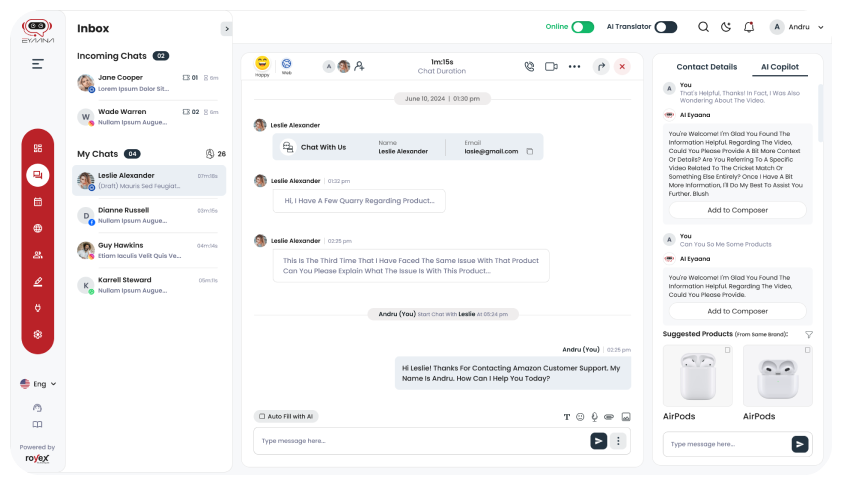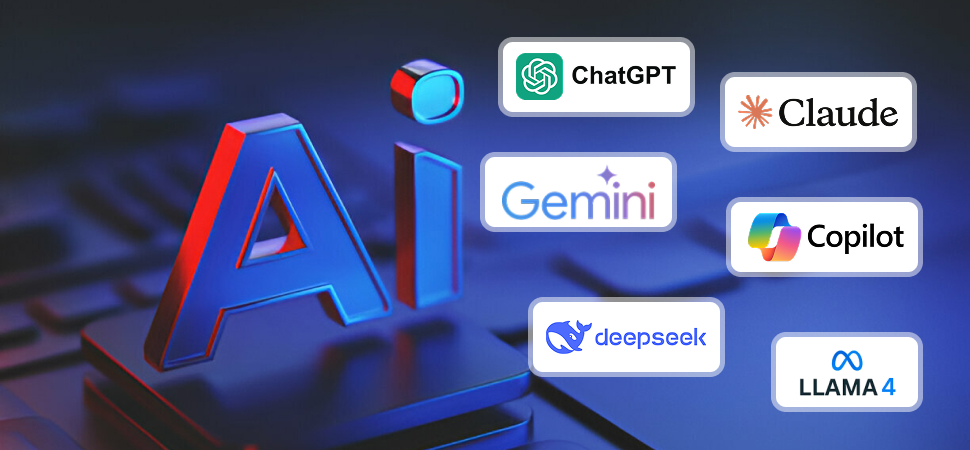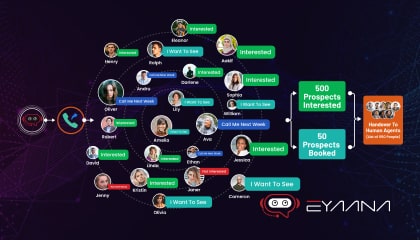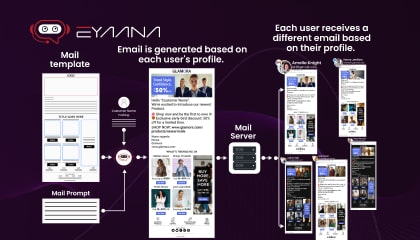Enquiry
Blog Details
The ROI of AI: Measuring the Impact of AI Investments on Business Growth
In today’s business landscape, Artificial Intelligence (AI) has become a key driver of innovation and growth. From improving customer service with AI chatbot apps to automating sales processes with AI sales agents, businesses are investing heavily in AI technologies. However, with these investments come critical questions: Is the cost of implementing AI justified? How can you measure its return on investment (ROI)? Understanding the ROI of AI is essential for making informed decisions about adopting these transformative tools.
This guide explores how businesses can calculate and evaluate the ROI of AI investments. By focusing on metrics like efficiency, cost savings, and revenue growth, and leveraging tools such as customer service AI, companies can clearly understand the value AI brings to their operations.
What is ROI in AI Investments?
![what-is-roi-in-ai-investments-min[1].jpg](/media/zpig5sve/what-is-roi-in-ai-investments-min-1.jpg)
ROI in AI investments refers to the measurable benefits that a business gains compared to the costs of implementing AI solutions. These benefits can range from increased efficiency and improved customer satisfaction to higher revenue and reduced operational costs. For instance, adopting an AI chatbot app might lead to faster customer query resolution, which in turn improves customer retention and loyalty.
To calculate ROI, businesses need to evaluate both tangible and intangible benefits. Tangible benefits include measurable metrics like increased sales or reduced labor costs, while intangible benefits might involve enhanced customer experiences or stronger brand loyalty. By considering both aspects, businesses can get a holistic view of the impact of their AI investments.
Key Metrics for Measuring AI ROI
To effectively measure the ROI of AI, organizations should consider both quantitative and qualitative metrics:
-
Cost Savings:
-
Reduction in operational expenses through automation of repetitive tasks.
-
Decrease in error rates, leading to lower costs associated with corrections.
-
-
Revenue Growth:
-
Increased sales through personalized marketing and improved customer engagement.
-
Identification of new market opportunities using predictive analytics.
-
-
Efficiency Gains:
-
Improved productivity by enabling employees to focus on high-value tasks.
-
Faster decision-making powered by real-time data insights.
-
-
Customer Experience:
-
Higher customer satisfaction scores due to AI-powered support and recommendations.
-
Enhanced loyalty and retention through tailored experiences.
-
-
Innovation Metrics:
-
Number of new products or services enabled by AI.
-
Speed to market for innovations.
-
Challenges in Measuring AI ROI
Measuring the ROI of AI comes with its own set of challenges:
-
Time Lag: AI projects often require substantial upfront investment in data collection, model training, and infrastructure, with benefits realized over the long term.
-
Intangible Benefits: Impacts such as brand reputation, employee satisfaction, or improved decision-making can be difficult to quantify.
-
Complex Attribution: Isolating the impact of AI from other contributing factors can be challenging, especially in dynamic business environments.
Key Benefits of AI Investments
![key-benefits-of-ai-investments-min[1].jpg](/media/ftabewqk/key-benefits-of-ai-investments-min-1.jpg)
Improved Efficiency
AI-powered tools like AI chatbot apps and customer service AI automate repetitive tasks, reducing the workload on human employees and speeding up operations. This efficiency allows businesses to handle more customer interactions without increasing costs, leading to better resource utilization.
Enhanced Customer Experiences
Personalization is at the heart of modern customer service, and AI sales agents excel in delivering tailored interactions. By analyzing customer data, these tools can offer customized solutions, recommendations, and support, fostering stronger relationships and improving retention.
Cost Savings
Automating tasks with AI reduces labor costs and minimizes errors, resulting in significant cost savings. For instance, an AI chatbot app can handle high volumes of customer inquiries, eliminating the need for large support teams and lowering operational expenses.
Challenges in Measuring AI ROI
While the benefits of AI are clear, measuring its ROI can be challenging. Intangible benefits like improved brand reputation or customer loyalty are harder to quantify. Additionally, AI implementation often involves long-term gains, making it necessary to track performance over time.
To address these challenges, businesses should combine quantitative metrics, like cost savings and revenue growth, with qualitative assessments, such as customer feedback and employee satisfaction. Regular performance reviews and adjustments to AI strategies can ensure sustained value.
Strategies for Maximizing AI ROI
To ensure maximum returns, businesses should adopt a structured approach to their AI investments:
-
Define Clear Objectives: Establish measurable goals aligned with overall business strategy.
-
Start Small and Scale: Begin with pilot projects to validate assumptions and demonstrate value before scaling across the organization.
-
Focus on High-Impact Use Cases: Prioritize AI initiatives that address critical pain points or unlock significant value.
-
Invest in the Right Talent and Tools: Equip teams with the necessary skills and technologies to deploy and manage AI solutions effectively.
-
Monitor and Optimize: Continuously track performance metrics, refine models, and adapt strategies based on outcomes.
The Future of AI Investments
As AI technologies continue to evolve, their potential ROI will only grow. Advanced tools like conversational AI, predictive analytics, and voice-based AI chatbot apps will offer even greater efficiencies and personalization. Businesses that invest in AI today position themselves to lead in their industries tomorrow.
Furthermore, AI adoption will likely expand beyond customer support and sales into areas like supply chain optimization, marketing, and product development. By staying ahead of the curve, companies can maximize their ROI and secure long-term growth.
Conclusion
Investing in AI is no longer a luxury—it’s a necessity for businesses aiming to thrive in a competitive market. By leveraging tools like customer service AI, chatbot apps, and AI sales agents, companies can significantly improve efficiency, enhance customer experiences, and drive revenue growth.
Calculating the ROI of AI requires a clear understanding of costs, benefits, and long-term potential. By following a structured approach and tracking key metrics, businesses can confidently measure the impact of their AI investments and unlock their full potential for growth. The time to embrace AI is now, ensuring your business stays ahead in the age of intelligent innovation.
Why Eyaana is the Best Choice for AI Chatbot?
![why-eyaana-is-the-best-choice-min[1].jpg](/media/iz0dvyta/why-eyaana-is-the-best-choice-min-1.jpg)
If you’re looking for a powerful yet user-friendly AI chatbot solution, Eyaana, customer service ai is worth considering. With Eyaana, businesses can seamlessly turn website traffic into live, engaging conversations, making it easier to convert leads into customers.
Eyaana is designed to be an AI-first customer support and sales solution, meaning it comes with powerful automation features, yet it’s easy to use even for non-technical teams. Its inbuilt CRM and helpdesk make customer management simple, while its AI-driven chat capabilities provide a smart, personalized experience for users.
Inbuilt CRM and Helpdesk: Eyaana comes with a built-in CRM and helpdesk, allowing businesses to manage customer data and support interactions in one place.
Flexible Pricing: Choose from Eyaana’s Lite and Pro packages starting from $99/month, with flexible, commitment-free tiers tailored to suit businesses of all sizes.
Multilingual Support: Engage a diverse audience with language options like Arabic, English, Hindi, and Urdu.
AI-First Design: Eyaana’s chatbot learns over time, enhancing customer interactions and turning site visits into conversations.
Scalability: Eyaana adapts to business growth, handling higher customer interactions with ease.
24/7 Support & Analytics: Real-time data and round-the-clock support help improve customer experiences.
For businesses looking to implement 24/7 customer support, Eyaana offers an excellent solution. With advanced AI capabilities, Eyaana is designed to provide fast, accurate, and personalized customer service around the clock. By choosing Eyaana, businesses can ensure that their customers are always taken care of, without needing to rely on human agents for every single inquiry. Whether it’s for answering questions, troubleshooting issues, or processing orders, Eyaana can help businesses deliver seamless 24/7 support with ease.
To explore how AI can enhance your business operations, sign up for free and get started with Eyaana today.
Do you need help?
We will provide detailed information about our services, types of work, and top projects. We will calculate the cost and prepare a commercial proposal.




































































































































